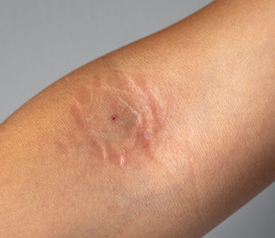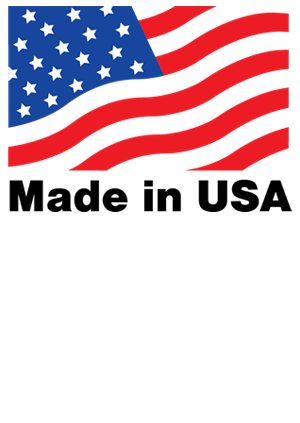
Whenever adhesive tapes are used in a medical situation there is a risk of skin damage. This is especially true when medical adhesive tape needs to be used on a patient’s face. The skin of the face can be more sensitive than other areas, and it’s important for medical professionals to use skin-sensitive tapes whenever possible.
Studies have been performed with a variety of tapes to determine the best options for avoiding skin irritation and damage during and after treatments and procedures. Here, we’ll discuss why medical adhesive tape can damage the skin, a study that was performed to learn more about facial skin irritation, and how alternative kinds of tapes and tape ingredients can help reduce irritation.
How medical tape can damage the skin
Medical tape, just like all types of tape, features adhesive chemicals that help the tape stay attached to a surface. This adhesive can be made of a variety of chemicals. If a patient has an allergy to any of a tape’s ingredients, skin irritation can become an issue. Sometimes the skin may react almost instantly to exposure to the chemicals while other times the skin will react hours or days later.
Another issue that could lead to skin irritation brought on by medical tape is the process of removal. Any tape, regardless of levels of adhesive, needs to be removed slowly. If the tape is removed quickly, skin irritation is almost guaranteed. While powerful adhesives help to keep medical tape safely in place, a balance must be struck between a secure hold and easy removal.
Hy-Tape is a specially formulated medical adhesive designed to be sensitive to all skin types. The adhesive used on Hy-Tape is made for holding firm while limiting the chances of skin irritation when removed. The ingredients of Hy-Tape are also designed to be sensitive to the skin and include skin-friendly ingredients like zinc oxide.
Case study: Medical tapes used over the eyes of skin-sensitive patients under anesthesia
In 2016, a case study was performed on 60 patients involving different types of medical tape. Each patient was deemed to be at risk of facial skin trauma. A variety of tapes were used to tape their eyelids closed during general anesthesia. None of the patients were made aware of the specific tape used, nor were the nurses made aware as they interviewed and assessed the patient’s skin irritation in the following days.
One day after their procedures, each patient was asked to rate their satisfaction with their skin irritation level from 1 to 5. The study showed that 4 patients had denudation of skin with standard tapes compared to 0 patients who had silicone tape. According to nurses, 11 patients with standard tape experienced skin irritation while 1 patient with silicone tape experienced skin irritation. Silicone tape was rated the better option by both patients and nurses.
The need for alternative medical tapes
The medical industry has a wide variety of tapes available for a range of purposes, and it will continue to be important for healthcare providers to use the best tape for specific situations. Case studies like the one above show that skin irritation can be a problem, and patients without a history of skin issues can also face skin damage when the wrong tape is used.
Different adhesive ingredients can be a big part of the solution. Identifying chemicals that irritate the skin and eliminating them from the adhesive could make a major difference for the patient. Allergies to certain ingredients can also be identified and proper tapes can be used to accommodate the situation.
Why Hy-Tape is a great solution for lowering the chance of skin irritation
Hy-Tape has been developed by experts in the medical and adhesive fields to provide the best blend of strong hold and skin sensitivity. The tape features zinc oxide, an ingredient that is commonly used in sunscreens and other skincare products. This helps to alleviate the irritation that could be brought on by adhesives when exposed to the skin.
Hy-Tape is also developed to be flexible and moveable with the patient. In most situations, the patient must still be able to move their body after a procedure, resulting in movement and shifting of their medical tape. Hy-Tape is made so that a patient can move freely without much risk.

